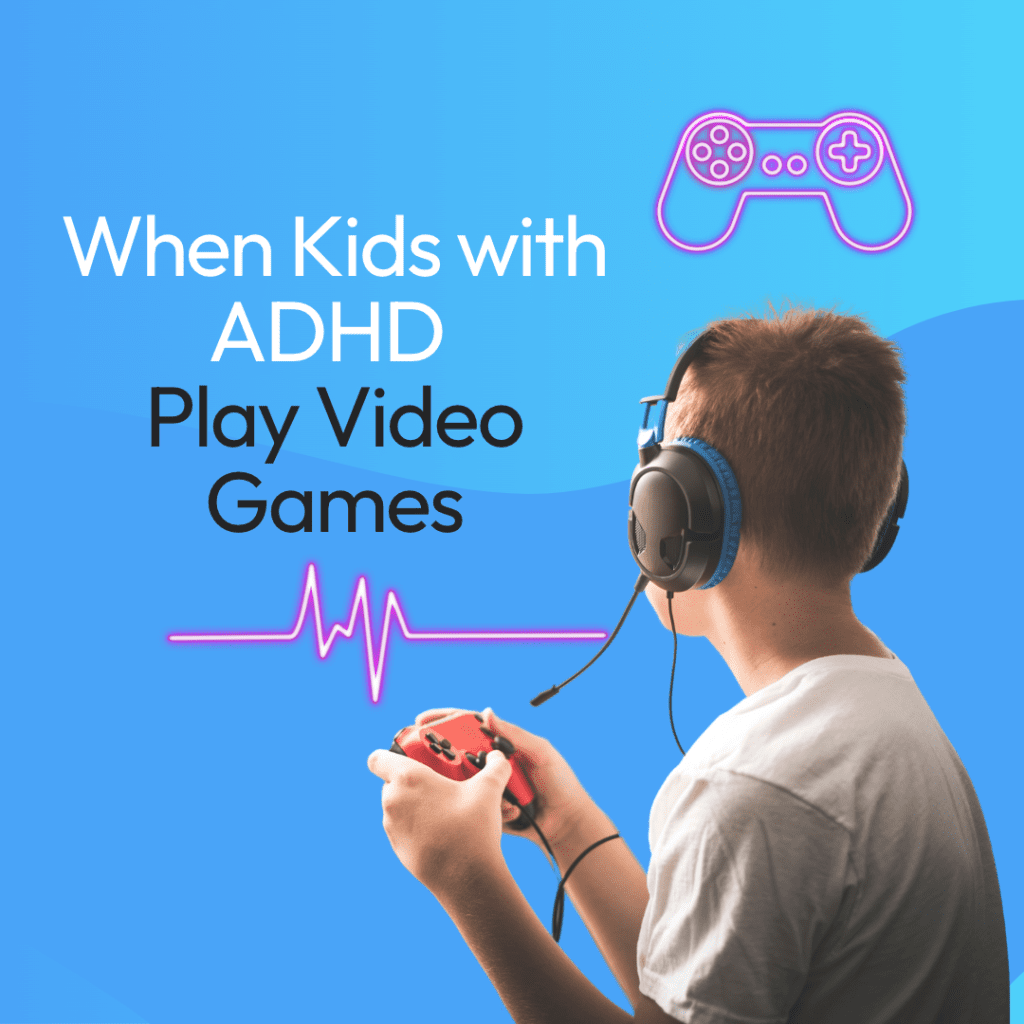What happens when kids with ADHD plays video games? Should you let them play?
I hear it all the time: “My child with ADHD (Attention Deficit Hyperactivity Disorder) has so much trouble focusing at school, but can focus on video games for hours on end! How can this be?” While ADHD can make it difficult to focus on certain activities, it also allows people to hyperfocus when they are really interested in something. Enter, video games. Many children and teens with ADHD love to play video games, and for good reason. Video games are challenging, fun, and allow access to other people with similar interests.
Kids with ADHD Play Video Games
If you are parenting a child with ADHD, here are four important considerations when it comes to gaming:

Understand a few key aspects of the ADHD brain
The brains of children with ADHD are wired differently. They are especially susceptible to reward, and video games trigger the reward system in the brain. In addition, as mentioned before, people with ADHD are able to hyperfocus. When people hyperfocus, they lose track of time and may forget to take care of their other needs (eating, sleeping, etc.) It’s also important to note that older children and teens may “self-medicate” with video games, as gaming helps them tune out areas of their lives where they don’t feel as successful (school, social relationships, etc.). Keeping these factors in mind can help us approach children with ADHD with more empathy and understanding when it comes to gaming behaviors. When kids with ADHD play video games it’s important to remember how their brains work.
Routines and predictability are key
We all thrive with routines and predictability. This is especially true for children and teens with attention differences. Try to find a specific gaming time that is scheduled each day and is not contingent on behavior. Children with ADHD thrive when they know what to expect. Decide when gaming time is, how frequently it happens (daily?, just on weekends?), how long your child should be able to play games, and what games he or she can play. Once you’ve come up with the parameters for gaming time, have an open conversation about the schedule and expectations with your child. Remember, it may take a few days for your child to adjust to the new routine, but stick with it. The persistence will pay off.
Meet your children where they are in terms of self-regulation skills
Kids with ADHD have difficulty regulating themselves. Despite the predictability associated with a specific gaming time, children with ADHD will still probably struggle to stop gaming. At first, you may need to step in and help your child disengage, or set up systems to remind your child about the end of gaming time (timers, monitoring devices,etc.). You may feel that you are treating your child as though they are younger than they actually are, but that’s okay. Our job as parents is to meet our children where they are, not where we think they are supposed to be. And, remember, use positive praise at every opportunity you get.
Show interest in your children’s favorite games
Often, video games can be a great gateway into conversations about life, school, and friends. Navigating the world as a child with ADHD can be challenging and difficult. Use games as a way to connect with your children and show interest in something that they love. You’ll be surprised where the conversation will take you!
By Rupa Robbins, Ph.D.
Founder, Spark Psychology
Licensed Psychologist and Tech Positive Parenting Coach
Dr. Rupa Robbins is a licensed child psychologist with over a decade of experience working with children and families. In addition to providing therapy and assessment services at her private practice, Spark Psychology, she also offers parent coaching and speaking services through her organization, Tech Positive Parenting. She is committed to helping families find balance in a digital age. In her spare time, she enjoys hiking, cooking, and spending time with her two young daughters.